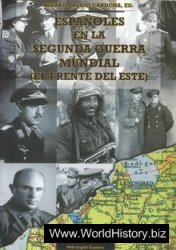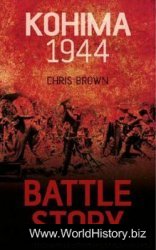Although Isidore says that natural law includes ‘‘the common possession of all things,’’ he also says that it includes ‘‘the acquisition of things taken from air, sea, and sky, the restitution of an article given in trust or money loaned’’; and one of the Ten Commandments is ‘‘Thou shalt not steal,’’ which shows that property is approved by God. Some held that common possession existed only in the state of innocence and had been superseded when property was instituted after the Fall. However, according to the canonist Huguccio and many others the original common possession still holds, in the sense that in time ofneed the better-off are obliged to share their means of sustenance with the poor, who commit no theft if they help themselves (Tierney 1997:72, 73, 139).
According to Thomas Aquinas, human beings have a natural lordship (naturale dominium) over useful external things, because by reason and will we are able to use them (ST 2-2 q.66 a.1). This dominium is not ownership, which is the topic of the next article, but an extension of dominium in sense (1), that is, it is an exercise of free choice, as in 1-2 q.1 a.2; man has natural lordship in the sense that he can use things at his choice (Compare 2-2 q.66 a.1 ad 1). In the next article (2-2 q.66 a.2) Thomas asks whether it is licit to possess something quasi propriam, that is, as being one’s own, to the exclusion of others - that is, whether property is licit. He answers that it is (for the reasons given by Aristotle), but one must be ready to share one’s property with others, especially in time of need. A poor person who takes another’s property in time of need is not guilty of theft (2-2 q.66 a.7).
Discussion of property and the right to sustain one’s life by using things intensified with Pope John XXII’s attack on the Franciscan claim that they had renounced all legal rights and used food and other things only by ‘‘simple use of fact,’’ without ownership. According to Bonaventure (Apologia pauperum 1269:312, followed by Pope Nicholas III, Exiit qui seminat (1279), Friedberg, vol. 2, col. 1113), the Franciscans renounce property and other rights, but since life is impossible without use of external goods, and self-preservation is a duty, ‘‘no profession may ever be made that renounces entirely the simple use of temporal goods.’’ This answers the objection that complete renunciation of property is suicide (Bonaven-ture:323, Nicholas, col. 1113). In his attack on the Franciscan position, Pope John XXII argued that no one can justly consume something without owning it. He was answered by various writers, including Bonagratia of Bergamo and Marsilius, who argued that one can justly use another’s property, without acquiring it as one’s own property, if the owner gives permission. To this the Franciscans’ opponents replied that permission confers a right, indeed (in the case of consumables) a right of ownership: to give permission to use a consumable is to hand over property in it. To consume with the owner’s permission is therefore incompatible with the Franciscan’s claim to have renounced all rights.
Ockham in the Opus nonaginta dierum distinguishes between natural rights and positive legal rights (OND 65.35), and he claims that an owner’s permission does not confer a legal right, or any new right, but merely ‘‘unties’’ the original natural right to use things. Like Alexander of Hales, Bonaventure, and Scotus, Ockham says that in the state of innocence property would have been contrary to natural law but after the Fall became permissible and in most circumstances obligatory. After the Fall, human communities have the right to enact positive law establishing the institution of property. The right to establish property is said in OND to be from natural law, supposing the circumstances of the fallen state (OND 92.16-45:439), in Breviloqium it is said to be from divine positive grant (Brev. iii.7.35-36:179); but in both works Ockham holds that the original right to use things to sustain life is a natural right. After the Fall, once human positive law has established property, the original natural right is ‘‘tied’’ but not abolished. Anyone can use any unappropriated thing, anyone can use anything necessary to sustain life in a situation of extreme necessity, and, even outside a situation of necessity, anyone can use another’s property with the owner’s permission.
An owner’s permission does not necessarily confer any legal right - it does not necessarily confer the ‘‘right to use’’ that is a legal right. (It is important here not to confuse the usus and ius utendi (OND 2.127ff, 2.155ff) that are legal rights with the ‘‘simple use of fact’’ to which a legal right is not necessarily attached (OND, 6.268270).) In some cases permission is intended to grant a legal right, and may be accepted in that sense; but an owner may give - using a term Ockham does not himself use - ‘‘bare’’ permission, without conferring any legal right whatever, so that if the permission is withdrawn, for any reason or for none, the beneficiary may not complain and cannot take the owner to court. Bare permission is the only kind Franciscans accept. The Franciscans’ use of things, outside the situation of necessity, rests upon the bare permission of owners. This is true even of the use of consumables: though by use a consumable ceases to exist, the friars can with permission consume things, just as slaves, children, guests, and others may consume food and other things that continue to be the householder’s property as long as they exist (OND 4.255ff). The permission that does not confer a legally enforceable right merely unties the original natural right to use things, and this right is enough to make the use just. (On all this see OND chapters 64 and 65.)
Later theologians were not much interested in ‘‘simple use of fact,’’ but otherwise their view of property was like Ockham’s: in the state of innocence every person had the natural right to use anything; this right is now restricted by property, which is an institution of positive human law; but one can use another’s property with the owner’s permission, and in a situation ofnecessity the original natural right revives so that helping oneself without permission is not theft.




 World History
World History









